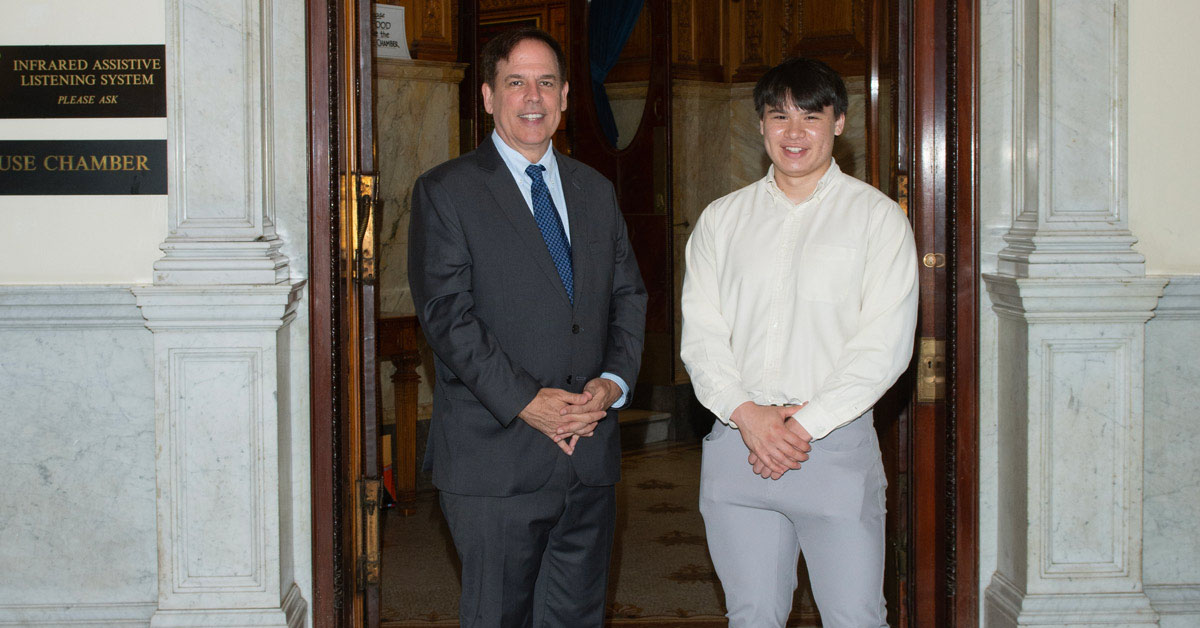Aiming to improve accessibility

David Saukkonen ’26 explores the policy behind health care
David Saukkonen ’26, a neuroscience major, spent his summer internship working in an unexpected place—the Massachusetts State House. The experience tested his analytical skills, problem-solving abilities and attention to detail just as much as a lab would.
It was the perfect environment to pursue an interest in healthcare policy that he developed after taking a “Health Economics” course taught by Associate Professor of Economics Phoebe Chan. He worked in the office of State Rep. David Rogers (24th Middlesex District) to gain experience on the policy side of health and science.
“I’m not a political science major; I have more of a science background. But I thought that could be helpful for health-care-related issues,” Saukkonen said.
On a typical day from June through August, Saukkonen researched legislation, drafted responses for Rogers, and produced summaries of bills and issues. Sometimes Saukkonen and other State House interns attended a speaker series or observed either the state’s House of Representatives or Senate in session.
One of his favorite things about the internship was the amount of freedom interns had to develop their independent projects. For his project, Saukkonen wrote an easy-to-understand guide explaining Massachusetts health care, which he said he hopes to get published in a local newspaper. Exploring his interest in health care policy is what drew Saukkonen to the internship.
“We have the technology and the medical knowledge necessary to help people, there are just some issues with allocating those resources. That has a tangible impact on people’s most basic needs,” he said. “Improving health care policy can lead to saving lives, people feeling better throughout each day and facilitating better economic opportunity.”
Saukkonen said he learned valuable communication skills during his internship, particularly how to write professionally in different environments and how to write about legislation in a way that is accessible to a broad audience.
“One of the best feelings I got was being able to understand the specifics of an issue myself,” he said. “It made me feel like I had a really deep understanding of what was happening in state politics.”
His internship also helped him feel closer to his community because he worked primarily with other interns and staff from his hometown of Belmont, Mass., which is in the representative’s district.
“We worked on local issues, so I got to know people in my town better and learned about events and concerns at the same time,” Saukkonen said.
His experience has led him to consider declaring either an economics or political science minor and to think about how to combine his science background with this newfound interest.
“There’s a field out there called neurolaw, which is applying neuroscientific evidence to the law. And I was a little interested in that before the internship,” he said. “Now that I have better knowledge of the specifics of healthcare policy making, that interest is more focused.”
—By Elsie Holt-Carson ’24
